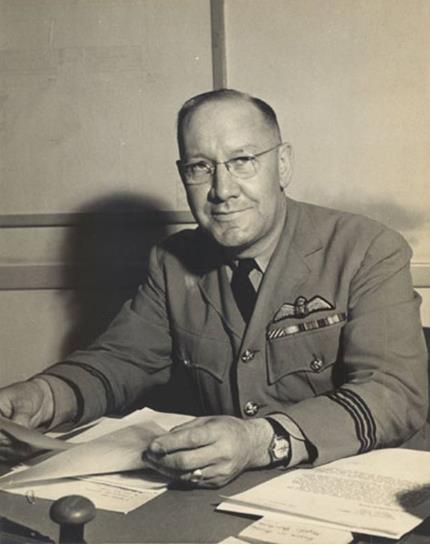Personnel Index - Detail
Awarded the DFC with 6 victories

Arthur Rowe Spurling was born in Hamilton, Bermuda, on 19th May 1896. He attested in the Bermuda Volunteer Rifle Corps (BVRC) on 11th February 1915 with number 989 and sailed with the first War Contingent of 1 officer and 88 NCOs and men for England on 8th May 1915. They were posted to the Lincolnshire Regiment, where Pte Spurling was allocated the number 17150.
He was commissioned on 29th July 1917, posted to the Royal Flying Corps School of Instruction at Hendon on 30th July 1917 and joined 89 Sqn on 30th August 1917. He graduated from the Military Wing and qualified for service in the RFC on 26th September and was posted to 40 Training Sqn Croydon on 7th October 1917. He was posted to France and joined 49 Sqn on 13th July 1918.
Lt Spurling and Sgt Bell were flying in a DH9 serial D3056 and had been credited with shooting down an enemy aeroplane on the 25th July and their five victories on the 23rd August brought their totals to six.
The amazing details of Lt Spurling's victories are recorded below (and can be viewed in Sgt Bell's own words and handwriting on his page).
The award of the DFC was announced in the London Gazette dated 2nd November 1918.
"On his return from a recent bombing raid this officer was separated from his formation owing to clouds. After flying for some twenty minutes, and thinking that he was over our lines, he came down to find his position: seeing an aerodrome. he was preparing to land when, at 2000 feet. a Fokker biplane attacked his machine.
Lieut Spurling than observed some thirty machines of the same type heavily camouflaged and, with great gallantry, he dived through the centre of the formation, shooting down one machine in flames; two others were seen to be in a spin, one of which crashed.
Five of them then closed on his machine, but by skilful manoeuvring Lieut Spurling enabled his observer to shoot down two of these in flames. The three remaining aircraft broke off the combat and disappeared in the mist.
A fine performance, reflecting the greatest credit on this officer and his observer. His observer, Sgt F.W. Bell received the Distinguished Flying Medal for this action."
The Bermuda Colonist newspaper dated 18th October 1918 provides more detail.
A formation of British machines had been carrying out some important operations well over the German lines. On the return journey the weather suddenly became hazy, and one of the pilots lost touch with the formation in the clouds. The British pilot set his course due west, and flew on for some time.
Having made what he thought was sufficient allowance for the distance to the British lines, he put down the nose of his machine and saw beneath him an aerodrome. The wind, however, freshened considerably, and so far as covering the ground was concerned he had been making only half the speed shown on airspeed indicator.
As he circled over the aerodrome, preparing to land, a German Scout machine suddenly appeared from the clouds above him, and immediately to attack. Marveling at the unusual temerity of the German in daring to attack over an English aerodrome, the British pilot checked his descent and opened fire on his attacker. At this moment he became aware that no fewer than thirty German machines were actually climbing towards him from the aerodrome.
Realising now that he was over an enemy aerodrome, he dived towards the first group of German squadrons, both he and his observer firing on every machine upon which they could get their guns to bear. The enemy pilots appeared too bewildered by the outstanding audacity of the British airmen to attack them effectively at first, and their own tremendous numerical superiority seemed further to confuse them.
One German plane burst into flames in the air, two more went down spinning and side slipping completely out of control. Four enemy scouts had by this time got into position to attack, clinging to the tail of the British machine. Two of these were sent blazing to earth. Shaking himself clear of the remainder, the British pilot opened his throttle and sped homewards leaving on that German aerodrome three blazing wrecks, and two other crashed machines as a highly satisfactory outcome of what might have proved a fatal mistake.
Postscript:

During WW2, Flight Lieutenant Spurling served again in the RAF (with the Ferry Command in Canada) and at the end of the war he married and returned to civilian life (owning a paint manufacturing company).
He moved to Guernsey in the 1970s and died there in 1984.
